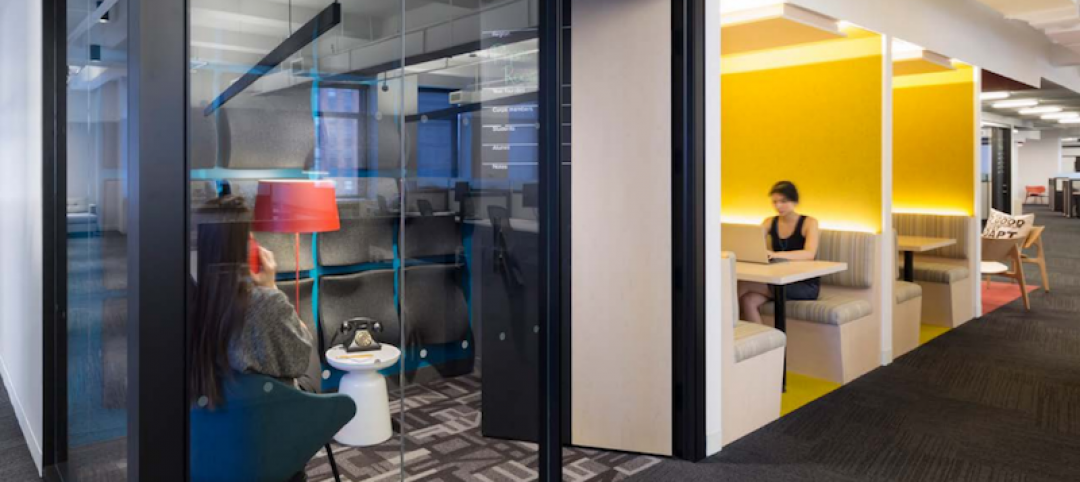Artificial intelligence (AI) is the next big step for retail and FMCG companies following the implementation of advanced big data and analytics (BDA) solutions, which can unlock huge data volumes in an automated way in real-time and ultimately lead to maximum profitability, according to data and analytics company GlobalData.
The company’s Disruptor Database revealed that although retailers have grown to their current size by capitalizing on profitable bits of digitalization, they are often challenged in understanding what their customers need at scale. There is a colossal amount of customer data with enterprises, but only a handful are able to generate value deemed from low conversion rates of below 5% overall.
This broadens the scope for retailers and consumer goods companies to use predictive analytics to enhance decisions related to supply chain management, customer behavior, staff allocation and the likelihood of goods being damaged, lost or returned.
Rena Bhattacharyya, Technology Research Director at GlobalData, says: “While most analysis related to understanding market trends, achieving greater customer personalization, and improving operational efficiency can be performed with BDA methods, AI in many cases is less cost intensive and faster - at times even instant.. Intelligent machine learning systems can replace expensive armies of data scientists and provide solutions or product recommendations in an automated way. The timing of the analytics is crucial, since opportunities for cost savings or additional sales are frequently limited to minutes or even seconds.”

What made their way through the experimental phase of AI in FMCG and retail are the use cases related to predictive analytics. For example, thanks to the integration of machine learning, eBay is now able to help sellers on its platform with solutions ranging from delivery time to fraud detection. It can also discover gaps in inventory of a particular product and alert related sellers to stock up on that item, as well as make price recommendations based on trending events automatically.
Procter & Gamble used deep learning technology to create a skin advisor service for its Olay brand. After screening millions of selfies and spotting key age characteristics, Olay’s service can provide women with personalized product recommendations based on skin analysis.
Leading retailers including Amazon, Alibaba, Lowe’s and Tesco are developing their own AI solutions for automation, analytics and robotics use cases. At the same time, many retailers have not implemented any AI solutions yet and are likely to fall behind their competitors.
“AI is the path to maximum profitability. It will be the technology platform that reaps the biggest rewards. Retail and FMCG companies looking to launch AI-based solutions should start by understanding the needs of their target customer base, focus on providing an omnichannel experience, and strive to achieve cost savings through greater efficiency,” concludes Bhattacharyya.
Related Stories
Market Data | Oct 28, 2016
U.S. construction solid and stable in Q3 of 2016; Presidential election seen as influence on industry for 2017
Rider Levett Bucknall’s Third Quarter 2016 USA Construction Cost Report puts the complete spectrum of construction sectors and markets in perspective as it assesses the current state of the industry.
Industry Research | Oct 25, 2016
New HOK/CoreNet Global report explores impact of coworking on corporate real rstate
“Although coworking space makes up less than one percent of the world’s office space, it represents an important workforce trend and highlights the strong desire of today’s employees to have workplace choices, community and flexibility,” says Kay Sargent, Director of WorkPlace at HOK.
Market Data | Oct 24, 2016
New construction starts in 2017 to increase 5% to $713 billion
Dodge Outlook Report predicts moderate growth for most project types – single family housing, commercial and institutional building, and public works, while multifamily housing levels off and electric utilities/gas plants decline.
High-rise Construction | Oct 21, 2016
The world’s 100 tallest buildings: Which architects have designed the most?
Two firms stand well above the others when it comes to the number of tall buildings they have designed.
Market Data | Oct 19, 2016
Architecture Billings Index slips consecutive months for first time since 2012
“This recent backslide should act as a warning signal,” said AIA Chief Economist, Kermit Baker.
Market Data | Oct 11, 2016
Building design revenue topped $28 billion in 2015
Growing profitability at architecture firms has led to reinvestment and expansion
Market Data | Oct 4, 2016
Nonresidential spending slips in August
Public sector spending is declining faster than the private sector.
Industry Research | Oct 3, 2016
Structure Tone survey shows cost is still a major barrier to building green
Climate change, resilience and wellness are also growing concerns.
Industry Research | Sep 27, 2016
Sterling Risk Sentiment Index indicates risk exposure perception remains stable in construction industry
Nearly half (45%) of those polled say election year uncertainty has a negative effect on risk perception in the construction market.
Market Data | Sep 22, 2016
Architecture Billings Index slips, overall outlook remains positive
Business conditions are slumping in the Northeast.

















